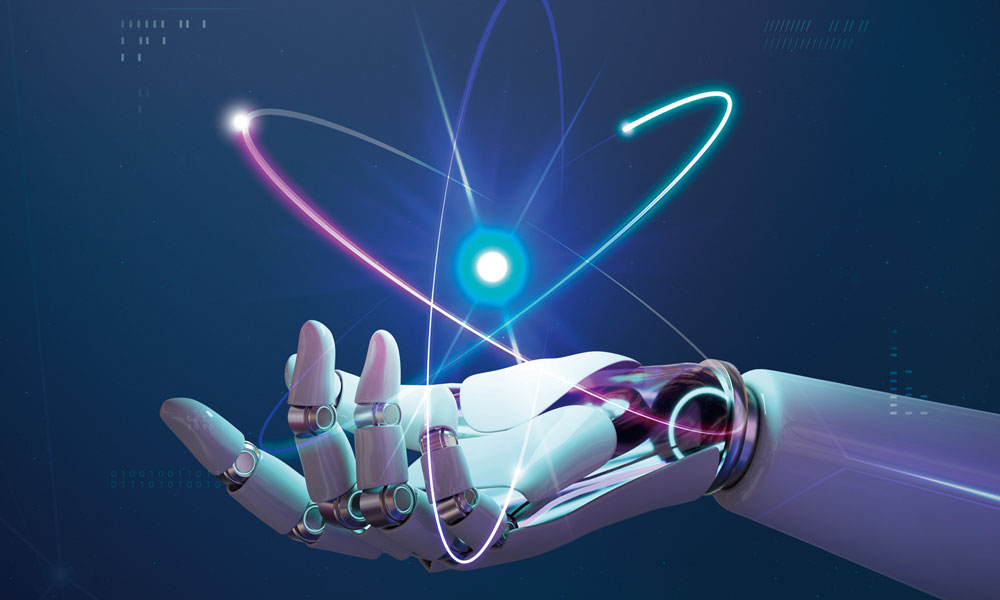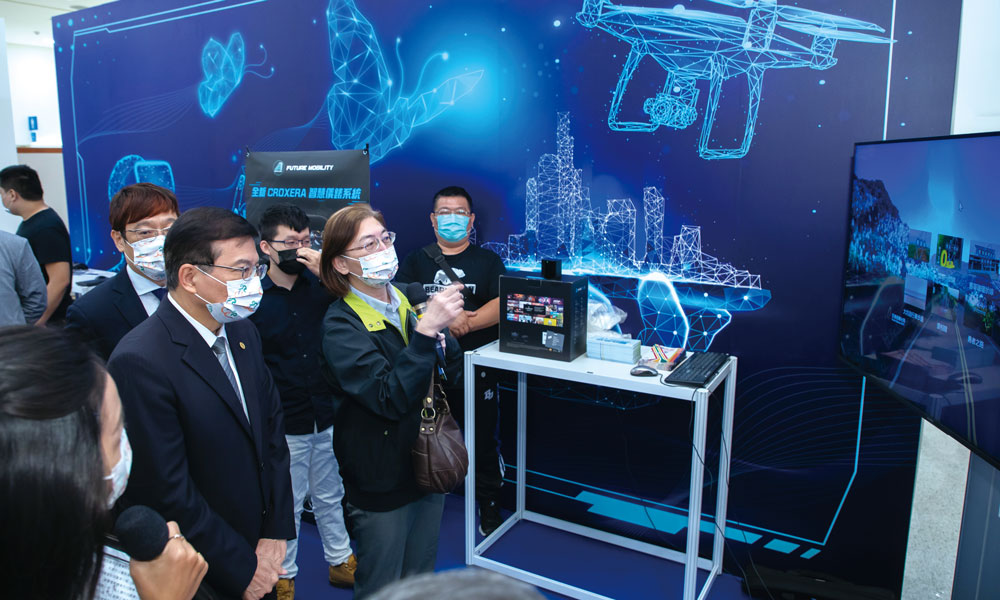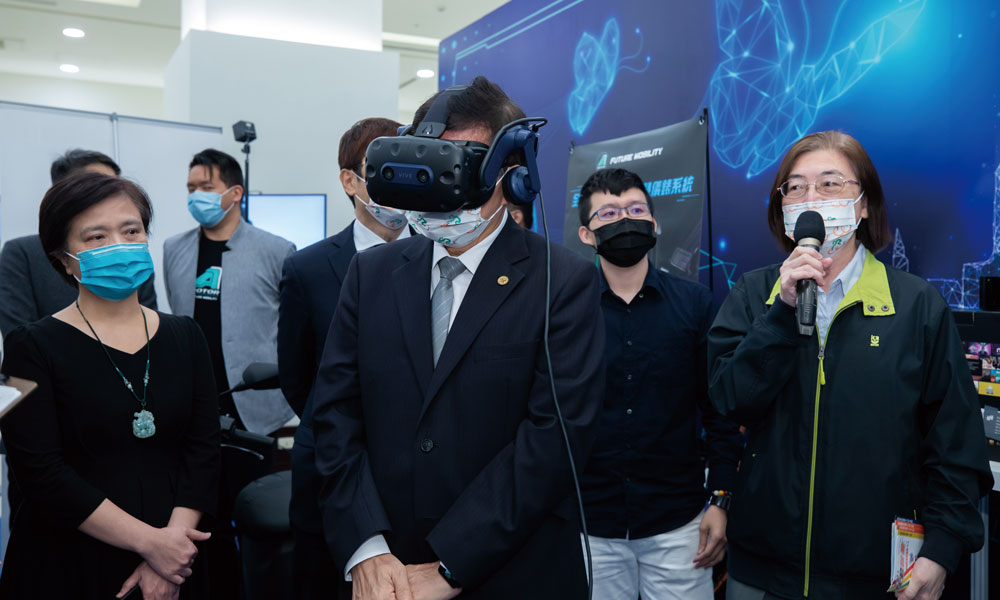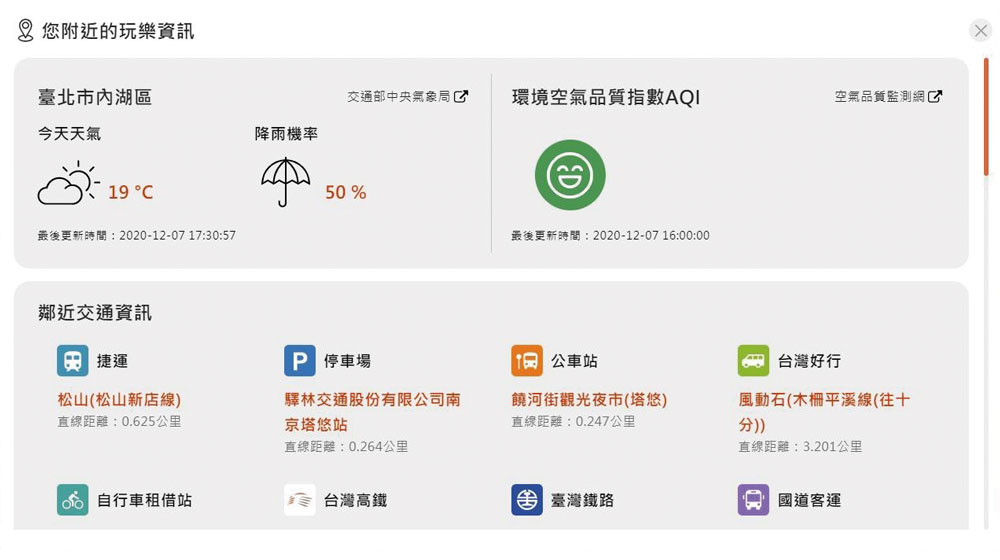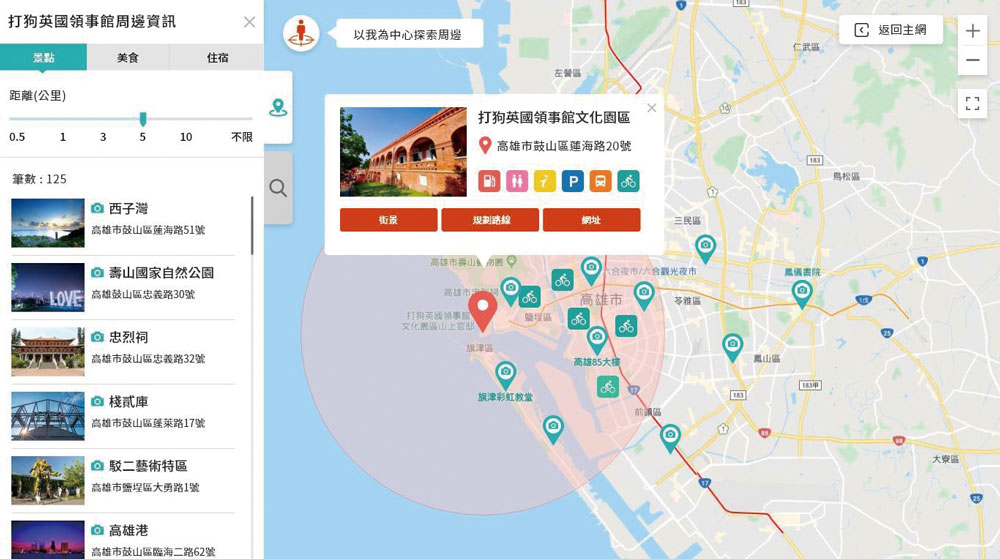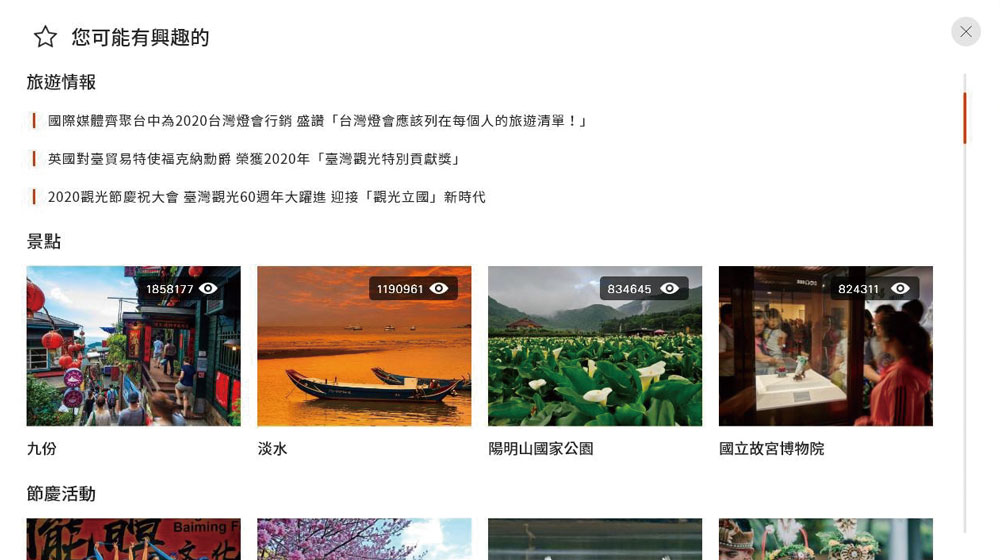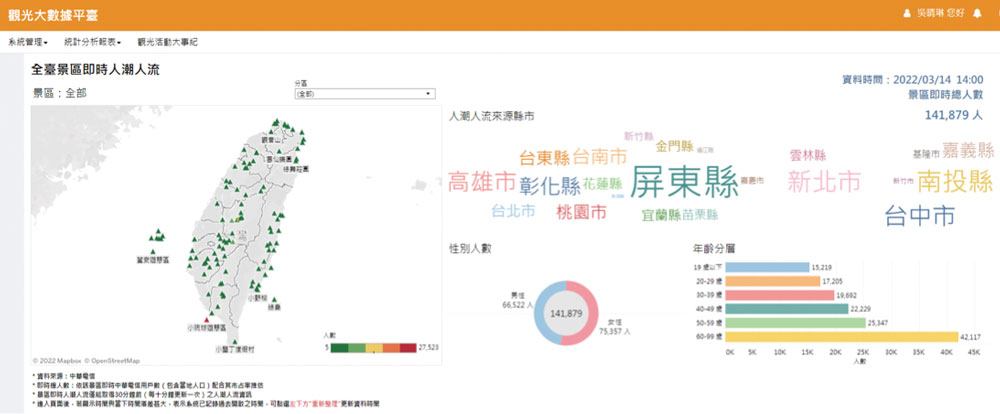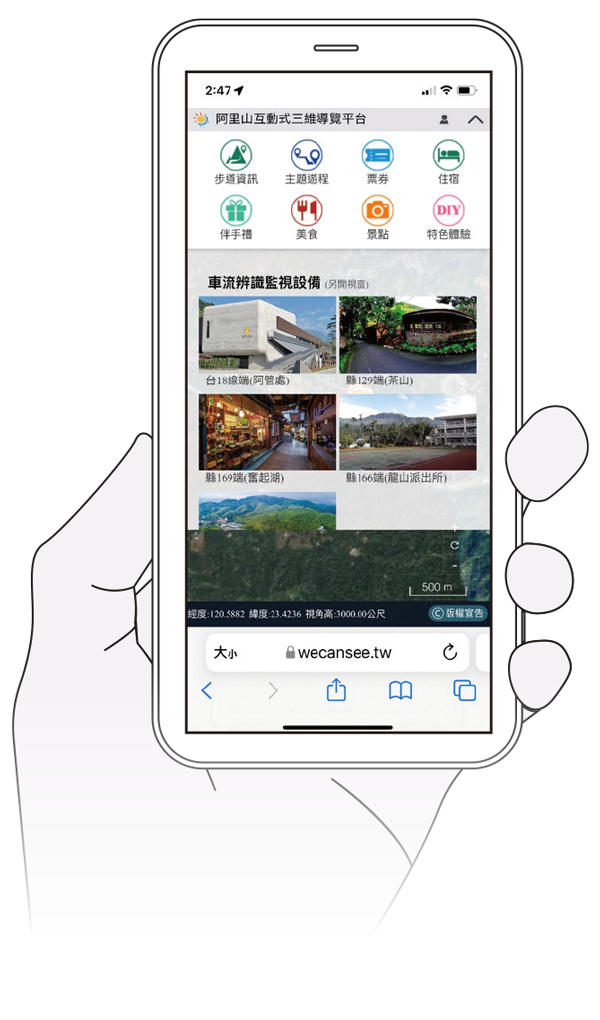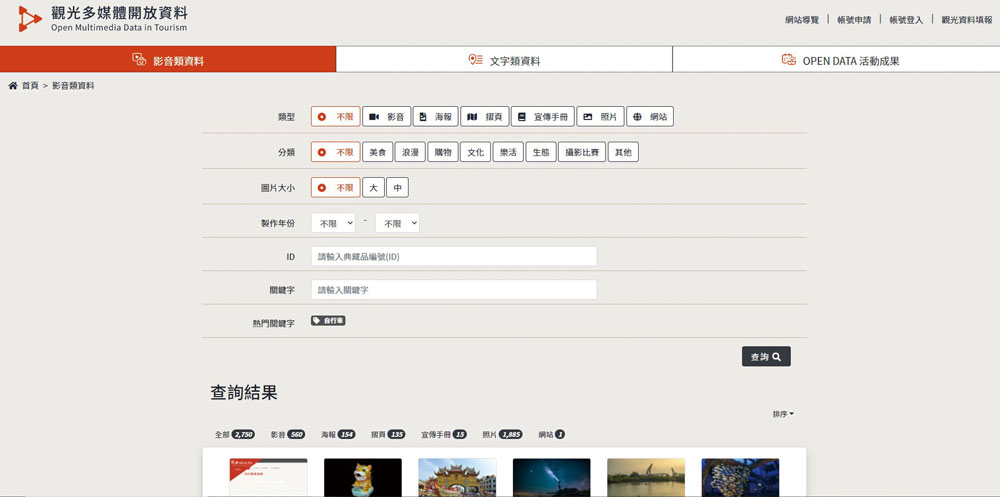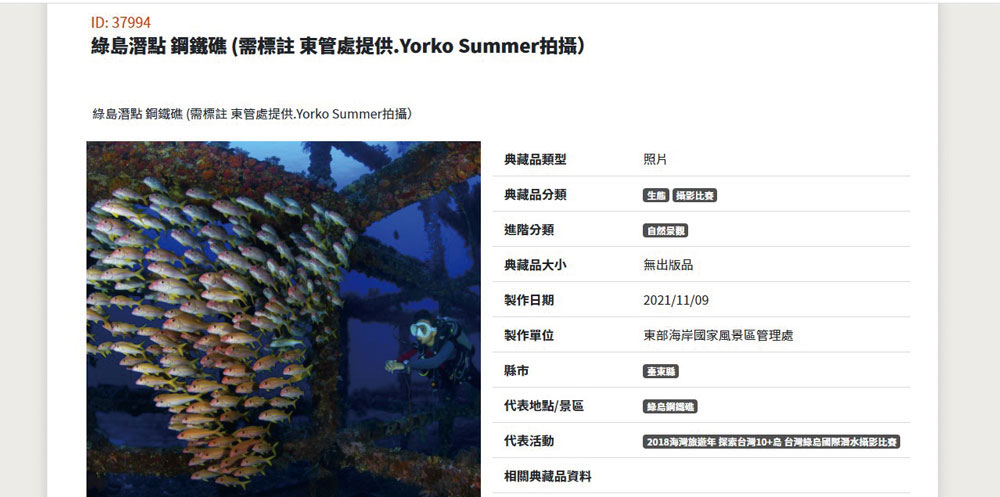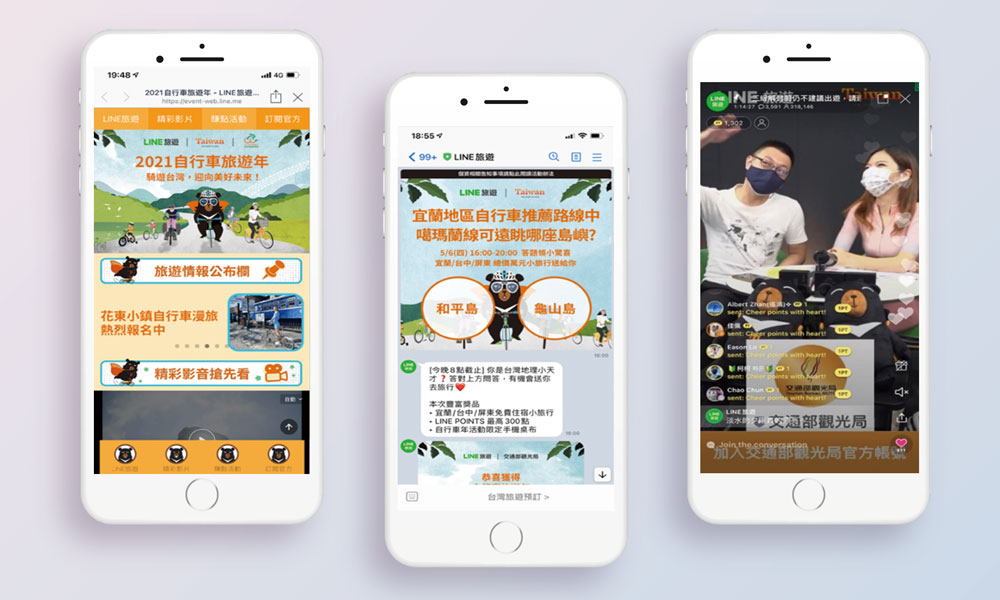Enhancing Tourism Information Services with Digital Technology
The Tourism Bureau plans to further apply technology in the post-COVID period, including optimizing online experiences and website functions as a major policy direction in tourism promotion. These initiatives aim to give domestic and foreign visitors convenient 24-7 access to needed information, tour planning, and tourism experiences.
3D E-tourism Experiences
The Tourism Bureau promoted and explored mobile 3D experiences (augmented reality and virtual reality) and other digital value-added services. It produced 360-degree panoramic videos of tourism attractions in Taiwan using virtual reality (VR) technology. Among them were five videos presenting the 16 Bicycle Routes: "The Road of the Brave," "Love Follows," "Slow City" and "Cycling Route No. 1," and "Cycling Fun." The routes were also marketed through websites, YouTube, and bicycles portals. In addition, the Tourism Bureau authorized scenic area administrations, county and city governments, and bicycle-related industries to use the clips in videos.
In addition, a promotional video for the Old Caoling Loop Bike Path was featured at experience areas set up by the national scenic area administration. In-person bicycle tour promotions were arranged at major travel shows and other venues. The bureau also collaborated with 35 fitness centers in Vietnam to present 360-degree panoramic videos of Taiwan bicycle tours through wearables in exercise bicycle rooms at the centers' 700 branches.
Introducing New Website Technology Services to Improve User Experience
The Tourism Bureau expanded the location-based service positioning and smart play map functions of the Taiwan Tourist Information Website to provide the public with practical, real-time travel information on nearby attractions, parking lots, accommodations, information stations, MRT service, and other resources through a user-friendly online search service. The site also used SPS marketing based on user browsing history and behavior models to proactively provide users with useful travel information and enhance the travel service search experience.
Gaining Tourism Insights through Big Data
The Tourism Bureau established a big data platform and data exchange standard format to integrate tourism related data through data interfaces and purchases of telecommunications data. It is also using mobile phone signal location data to collect information on daily traveler visits and number of overnight person/day stays by county and city (township administrative areas), and movement by area, county, and city. This data enables the bureau to track monthly changes and trending popular counties and cities for overnight stays. The bureau also regularly conducts rolling reviews according to demand and continues to increase interfacing with external data to enhance the benefits of its big data platform.
Introducing Smart Traffic Flow Early Warning Systems at Scenic Areas
The Tourism Bureau installed early warning management systems for people and traffic flows at popular scenic spots in 13 national scenic areas to collect real-time information on parking lot usage and people flow in those areas. The data is used to provide real-time notifications on crowd levels and traffic flows and track traffic congestion at visitor sites during holidays.
Optimizing and Encouraging the Use of Tourism Information
The Tourism Bureau collects data on visitor sites, events, accommodations, food, trails, bikeways, and other tourism information for Taiwan. This data is made available for public use through the government's open data platform. More than 27,000 basic GIS data files are available and have been downloaded over 100,000 times. In 2021, the service earned the excellence mark for government open data and popularity award for deepening application of open data.
Marketing Taiwan through Integrated New Online and Traditional Media
The Tourism Bureau stepped up social media operations through Facebook, Line, Instagram, and other channels to provide real-time travel information, attract engagement in travel topics, and increase the stickiness of community users. It also partnered with online influencers to share their travel experience in conjunction with real-world tour activities to spur experiential tourism.
